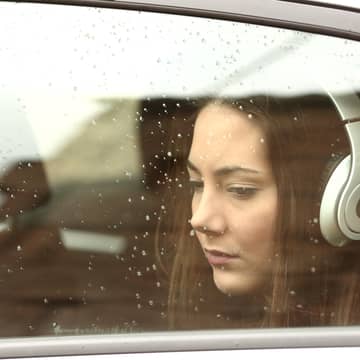Describe the bio-temperamental differences between undercontrolled and overcontrolled adolescent depression.
At the root of emotional undercontrol (UC), biological dysfunction in the emotion regulation system interacts with an invalidating environment, leading to pervasive emotional dysregulation. These patients are characterized by high reward sensitivity, low inhibitory control, low attention to details, high novelty seeking, low distress tolerance and often low threat sensitivity. Adolescents with a pathological degree of undercontrolled temperaments can present as emotionally reactive and expressive, aggressive, excitable and lacking in self-control.
On the other hand, the biotemperament underlying emotional overcontrol (OC) is characterized by high threat sensitivity, low reward sensitivity, high inhibitory control, high attention to details, low novelty seeking and what appears to be high distress tolerance. In their environments, young OC individuals have learned that mistakes are intolerable, structure and control is essential, winning is imperative and vulnerability must be avoided at all costs. They cope by masking inner feelings, seeking perfection and avoiding risk; they dislike being the center of attention and, because they appear aloof and distant to others, they tend to lack intimacy and close relationships.
How do self-injury and suicidal behaviors present in adolescents with OC and UC depression?
Adolescents with UC depression are impulsive and seek to distract themselves from or to escape emotional pain. Self-injury in UC depression can be an attempt to show or communicate their pain on the outside. Suicidal thoughts can get negatively reinforced when someone is in a lot of emotional pain and they have a passing thought that they can end it all. Instead of getting distressed that they had that thought, they get relief at the thought and then think about suicidal thoughts more often. People cannot prevent those automatic thoughts from popping, but we can decide what to do with those thoughts.
Among adolescents with OC depression, self-injury aligns their affinity for rules (i.e. “If I’m good, I am rewarded; if I’m bad, I should be punished”). Self-injury behaviors are generally well-planned, at times ritualized and usually a well-kept secret. Suicidal behavior also tends to be planned, and OC adolescents may attempt suicide to punish others. Because they are rule-governed, suicidal behaviors seek to restore faith in a just world and may be romanticized.
How does treatment for UC and OC adolescent depression differ? Which psychological interventions are effective?
For UC adolescent depression, the goal is to decrease maladaptive coping and increase effective skills. Dialectical Behavioral Therapy (DBT) is a valuable psychological intervention for these patients. The purpose of DBT is to create a life you want to live or to be present in, instead of a life you continually try to escape through use of maladaptive coping behaviors. The more you live your life according to wise-minded values, the less anxious and depressed you become. UC patients need to learn how to try harder and be more committed to change, so they benefit from the validation of their struggle while helping them see what is needed for change (dialectical synthesis). DBT skills include core mindfulness, emotional regulation, distress tolerance and interpersonal effectiveness. It’s not what we think or feel that is the problem, it is what we do—or don’t do—about those thoughts and feelings that can be problematic. When UC patients are in distress, DBT helps them remember their options and choose carefully: problem solve, change your interpretation, do nothing or radically accept what you cannot change so that you can bring your attention back to what you can problem solve or how you can change your interpretation.
For patients with OC adolescent depression, Radically Open Dialectical Behavior Therapy (RO-DBT) is a cutting-edge, evidence-based treatment approach rooted in the neuroscience of emotional expression and social connectedness. RO-DBT targets the core deficits of overcontrolled coping: receptivity and openness, flexible responding, emotional expression and awareness, social connectedness and intimacy. RO-DBT offers OC patients a practical framework for learning from their environments, making meaningful changes to connect with others and improving their relationships.
Radical openness and self-enquiry are the core skills of RO-DBT, and involve compassionately exploring our “personal unknown.” In other words, radical openness teaches us to doubt or question ourselves, our beliefs and our behavior in order to learn and grow. Radical openness enhances our relationships because it models humility and the willingness to learn from what the world has to offer. While traditional DBT targets emotional dysregulation (difficulty identifying, accepting and coping with unfamiliar or intense feelings), RO-DBT targets emotional loneliness as the core problem for overcontrolled personalities. RO-DBT explores issues of loneliness and social isolation, helping patients to cultivate connection through flexibility and willingness to bring more risk and acceptance into their lives. Both DBT and RO-DBT encourage patients to seek and validate their personal truths (dialectics), and develop skills to make meaningful changes to their behavior (behavioral therapy).

